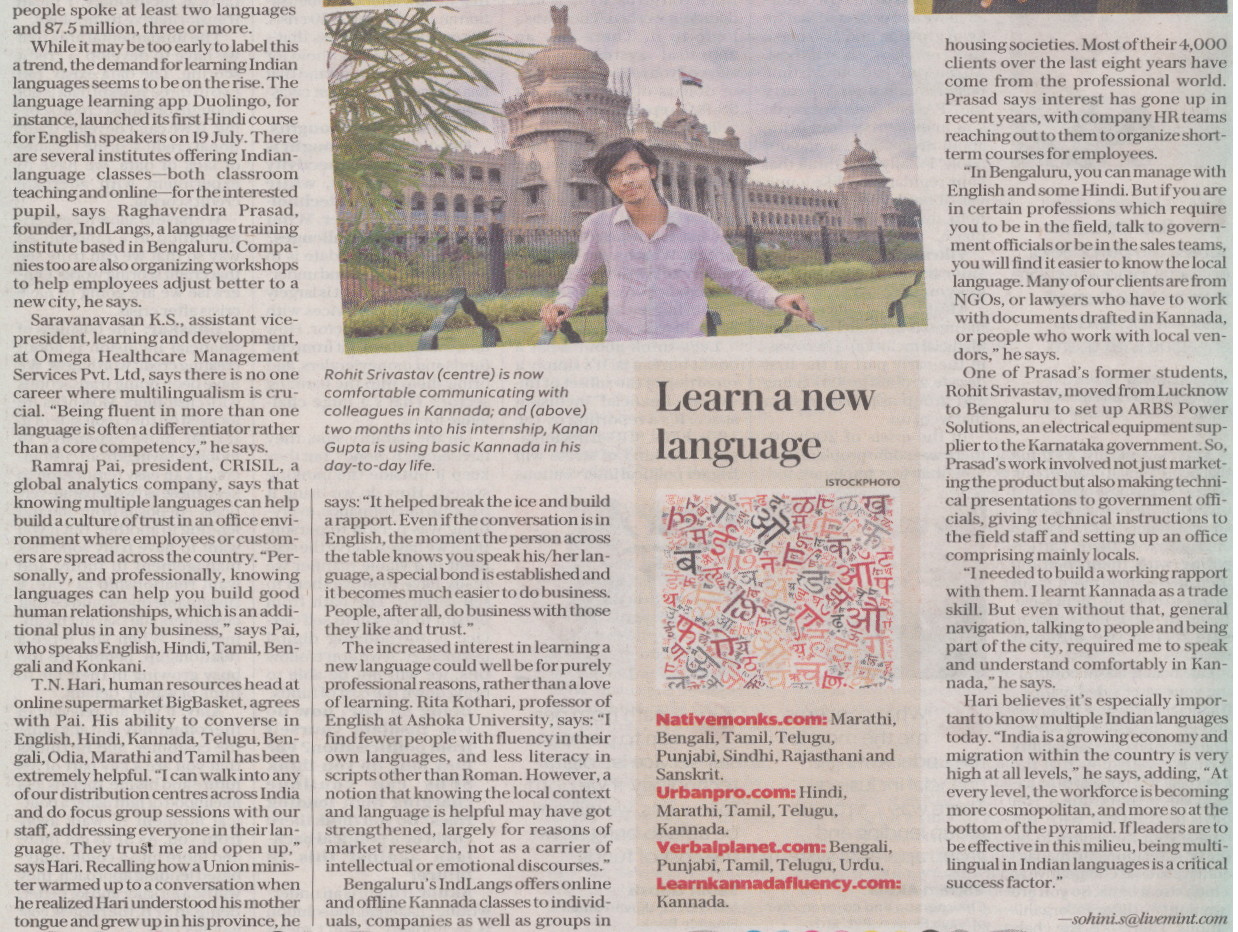
Is being multilingual a resume trump card?
July 23,2018
By Dr.(HC)Saravanavasan KS (AVP – Learning & Development)
When Kanan Gupta landed an internship at the Indian Institute of Science in Bengaluru, he didn't think twice about accepting it. A student of mathematics at Ashoka University, Sonipat, Gupta has been in Bengaluru for two months and is slowly picking up bits of the local language. His job doesn't require him to speak Kannada but he has learnt a few phrases to get by.
"I have been lucky because Bengaluru is very metropolitan but I have realized it helps to know the local language, at least the basics," he says.

He is not the only one. As Indians become more mobile, the chances of them relocating to different cities increase. In a country like India, which has 22 official languages and is home to over 780 others according to a 2013 People's Linguistic Survey of India (PLSI) study, being able to speak, read and write at least one other language aside from your mother tongue and English isn't such a stretch. In fact, data from the 2001 census on bilingualism and trilingualism showed 255 million people spoke at least two languages and 87.5 million, three or more.
While it may be too early to label this a trend, the demand for learning Indian languages seems to be on the rise. The language learning app Duolingo, for instance, launched its first Hindi course for English speakers on 19 July. There are several institutes offering Indian-language classes—both classroom teaching and online—for the interested pupil, says Raghavendra Prasad, founder, IndLangs, a language training institute based in Bengaluru. Companies too are also organizing workshops to help employees adjust better to a new city, he says.
Saravanavasan K.S., associate vice-president, learning and development, at Omega Healthcare Management Services Pvt. Ltd, says there is no one career where multilingualism is crucial. "Being fluent in more than one language is often a differentiator rather than a core competency," he says.
 Read More
Read More


